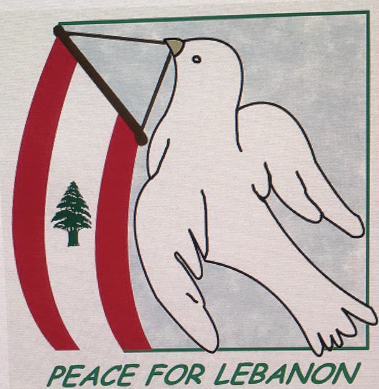Parents struggle with education in Lebanon, Jordan
For parents, 'back to school' means tapping into savings to pay for tuition, books, uniforms and transportation, costs that soar almost every year.

Syrian refugee students at class in a UNICEF school, on September 22nd.
Samar Kadi
Beirut - As back-to-school season kicks off in September, many students are excited to return to class and reunite with schoolmates after a long summer vacation. But parents are not as excited. For them, “back to school” means tapping into savings to pay for tuition, books, uniforms and transportation, costs that soar almost every year.
“I have two children. Their tuition costs $4,500 per year for each,” said Kamal Badran, an IT operator. “This year, the school increased tuition by 20% and even prices of books have gone up.”
Like the majority of Lebanese parents, Badran sends his children to private school. “I was educated in public schools but, although the curricula is the same, you don’t have as many good teachers and a serious follow-up of students, so I decided to send my children to private schools,” he said.
Badran’s eldest daughter is in ninth grade and he had to pay about $800 for her books only, excluding stationery. “They keep changing textbooks every year, which means that my younger daughter cannot use her sister’s books…This is haram (sinful). We save all year long to be able to send them to a decent school.”
However, for the 190,000 Lebanese students getting basic education in public schools, the burden is alleviated, largely due to the Syrian crisis and the influx of refugee school-age children.
“The Ministry of Education, with support from UN agencies and the international community, has launched a campaign under the title of RACE, acronym for Reaching All Children with Education, which is a three-year project aimed at securing the right of Syrian refugee children to education and, at the same time, it benefited Lebanese students,” said Sonia Khoury, a ministry official in charge of the programme.
Under the project, more Syrian children, who make up almost 50% of the refugee population in Lebanon, will have free access to public education. “Last year, we had 106,000 Syrian students enrolled in public schools and divided between morning and afternoon shifts. This year, our target is to have 200,000, among a total number of 400,000 refugees,” Khoury said. Free education is being offered from first grade through ninth grade, she noted. “The Syrian students will also get free textbooks, supplies and stationery and we have asked donors that Lebanese students in public schools be treated the same way.”
“In addition to that, the symbolic fee of 60,000 Lebanese pounds ($40), which is paid by Lebanese students to the school fund, has been covered under the programme. That means, no burden of tuition or textbooks or fees,” Khoury explained.
During a recent visit to Lebanon, British Prime Minister David Cameron pledged to increase his country’s aid to the country by more than $15 million for three consecutive years, to beef up its capacity to cater for education to Syrian refugees. In Cairo, the Fagala stationery market turns into the “Mecca” of parents with school children in the days that precede the beginning of every academic year. Crowds of mothers and fathers converge on the downtown Cairo market, which boasts many stationery shops.
This year, however, a significant rise in the US dollar exchange rate is rendering the mostly imported stationery items very expensive for average bread winners.
“There is a noticeable rise in the prices of all items,” said Amr Saber, a minivan driver and the father of two children. Saber held a long list of items — pens, pencils, paper, envelopes, notebooks and school bags — he needed to buy for his children. “I really do not know what to do,” he said.
He said he had been preparing for months for the start of the academic year, adding: “School fees rise every year and I do not know how I will be able to pay.”
Millions of Egyptian students are set to return to their classrooms and parents such as Tamer Hosni, a civil servant, are feeling the heat.
“I have paid 7,000 pounds (roughly $850) in school fees for my two children so far,” he said. “This is not to mention the other needs for school entry, which have turned into a real burden.”
Jordanian parents are as stressed as in Egypt and Lebanon, complaining of heavier expenses as schools opened a few days before the Muslim feast of Eid al-Adha.
“It started with summer outings, then a vacation on the beach, then Ramadan and the fasting, then school fees, textbooks and backpacks and now it’s the other Eid,” said Amman bank teller Adham Nseirat, 45, a father of four.
“It’s unending and I can’t wait until all this is over somehow.”
Amman clothing shop owner Mahmoud Natsheh, 52, the father of five, said he was barely able to make ends meet.
“I’m spending more than I earn, exhausting all my savings,” he said.
In Jordan’s Palestinian refugee camps, which host some 70 schools run by the United Nations, parents also complained of extra costs.
“Although we don’t pay for school tuition and textbooks, my nine children need money to buy stationery and handbags, which I can’t afford,” said 59-year-old carpenter Mohammed Saad.
